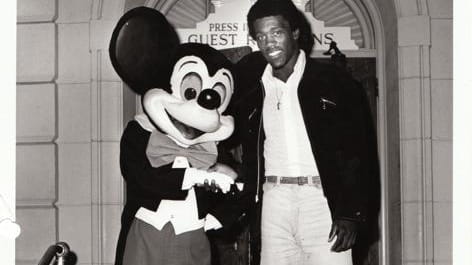NFL legal wrangling might last months
For now, the NFL isn't backing down. But Northeastern University law professor Roger Abrams, whose extensive writing on sports and labor law includes the book "Sports Justice," suggested that -- at some point prior to the scheduled start of the 2011 season -- "someone in the NFL should be made vice president of saving face."
Abrams called U.S. District Judge Susan Nelson's ruling that lifted the league lockout -- and her subsequent denial of an NFL request to stay the injunction -- "a 900-0 opinion against the league. The NFL hasn't figured out that they lost. Oh, boy, did they lose."
Now that the Eighth Circuit Court of Appeals has ruled in the NFL's favor on Friday, it still will not sway Abrams' original prediction, that "we will not lose any meaningful games this year."
The Eighth Circuit has been described as a "business-friendly court," but "I can't figure out who's the business side," Abrams said in a telephone interview. "Is it the individual workers [players] who want to sell their services for what the market bears? Or is it -- and this would take quote marks -- the 'socialists' who share their major source of income?" That is, the NFL owners.
Since the Eighth Circuit did not uphold Nelson's ruling, there will not be any good mediation between the league and players right away, thus no immediate step toward a new collective-bargaining agreement. Instead, months of legal process likely will follow, but the threat of players winning their pending antitrust suit ultimately provides notable leverage against the league.
NFL commissioner Roger Goodell "is absolutely right that this will have to be resolved through negotiation," Abrams said. "And the NFL needs the NFLPA because it needs to keep doing things that are a violation of antitrust law" -- including the just-concluded college player draft.
"Everything that the business of sports does in a team sport would violate antitrust laws," Abrams said. "Owners agree they will not pay more than a certain amount, or agree to exclusive territories. But Congress, in its wisdom, not only passed antitrust laws but enacted the National Labor Relations Act, the right to demand to bargain collectively."
And the Supreme Court has held that CBA agreements trump antitrust law.
The NFL's argument that the players "can't turn the switch and become a non-union, then become a union," Abrams said, was shot down in Nelson's 89-page opinion. So the 1932 Norris-LaGuardia Act, prohibiting a federal court from issuing an injunction in a labor dispute, "doesn't apply, Nelson said, in this case, because this is not a labor dispute -- because there is no union."
To Abrams, who said the NFL dispute has prompted "every sports lawyer in the country" to exchange constant e-mails on legal theory: "The key to a deal is an appreciation of the economic power of the parties on opposite sides of the table. The NFL has enormous economic power and can withstand a lockout for a long time -- though I can't imagine the television networks would let them do that.
"So in straight economic power, the NFL wins. But that economic power, against antitrust liability, it's not at all clear who wins. What the NFL did wrong was coming into negotiations saying, 'Our demand is for the extra billion dollars.'
"Other than the fact that greed is good, I could not understand why they demanded the next billion. The problems they had with the players over rookie salaries, health issues, and so on, could be worked out really easily."
Meanwhile, Abrams said, NBA Players Association executive Billy Hunter "is taking notes."

